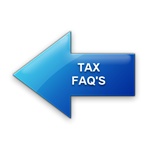What are "self-employment" taxes?
If you’re self-employed, you generally have to pay “self-employment tax”, as well as federal & state income tax. Self-employment tax includes the payroll taxes for social security and Medicare. When you’re an employee, payroll taxes are automatically taken out of your paycheck (as of 2020, the social security contribution rate is 6.2%, and the Medicare contribution rate is 1.45%...for a total payroll tax of 7.65%). What most don’t see is that not only does the employee pay this 7.65%, but the employer also pays into social security and Medicare in an equal amount. So the total is 15.3%, ½ paid by the employer and ½ paid by the employee.
But when you’re self-employed, you’re essentially the employer and the employee; so you pay both ends of these payroll taxes. This means you pay the full 15.3% total on net self-employment earnings (there are some other details such as the social security portion only being paid up to the social security wage base, which is $137,700 in 2020).
It’s also important to note that these taxes should be paid on an “as-you-go” basis, which often dictates the need to make estimated tax payments.
Feel free to contact us if you have questions regarding self-employment taxes.
© 2024 Peshke Financial Inc., all rights reserved. NMLS #2244878. DRE #02210589. "Making Finances Simple. Changing Lives." is a registered trademark with USPTO. Material contained in this website is for informational purposes only and is not meant to be construed as direct financial advice for your specific situation. It is recommended that you consult with your own advisors for any personalized financial guidance. Since we’re not licensed attorneys, we cannot provide legal advice. As such, any info contained in this website should not be construed as direct legal advice. Individual Licensure (see profiles) - click here. Send Docs Securely - click here. Privacy Policy - click here.


